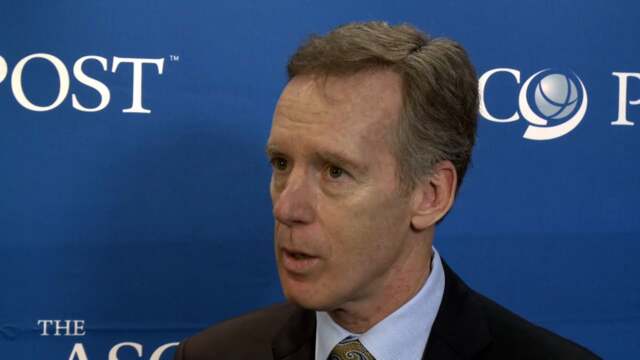James O. Armitage, MD, FACP, FRCP, and Richard M. Stone, MD, on Clinical Trial Results for AML, MDS, and CMML Treatment
2014 ASH Annual Meeting
James O. Armitage, MD, FACP, FRCP, of the University of Nebraska Medical Center, and Richard M. Stone, MD of the Dana-Farber Cancer Institute, discuss three clinical trials: different doses of daunorubicin for AML; comparing azacitidine plus lenolidomide to vorinostat vs azacitidine monotherapy in MDS and CMML; and sorafenib vs placebo in addition to standard treatment for AML.
Related Videos
Laurie Sehn, MD
Laurie Sehn, MD, of the BC Cancer Agency, on abstract 289, “Nivolumab in Patients With Relapsed or Refractory Hodgkin Lymphoma: Preliminary Safety, Efficacy, and Biomarker Results of a Phase I Study,” presented by Philippe Armand, MD, PhD.
Hagop Kantarjian, MD
Hagop Kantarjian, MD, of The University of Texas MD Anderson Cancer Center, offers his thoughts on abstract 797, “First Results of the Multicenter Total Therapy Gimema LAL 1509 Protocol for De Novo Adult Philadelphia Chromosome–Positive Acute Lymphoblastic Leukemia Patients,” presented by Sabina Chiaretti, MD, PhD, and abstract 798, “Nilotinib and Chemotherapy for First-Line Treatment in Elderly Patients with De Novo Philadelphia Chromosome/BCR-ABL1–Positive Acute Lymphoblastic Leukemia (ALL): A Trial of the European Working Group for Adult ALL (EWALL-PH-02),” presented by Oliver G. Ottman, MD.





